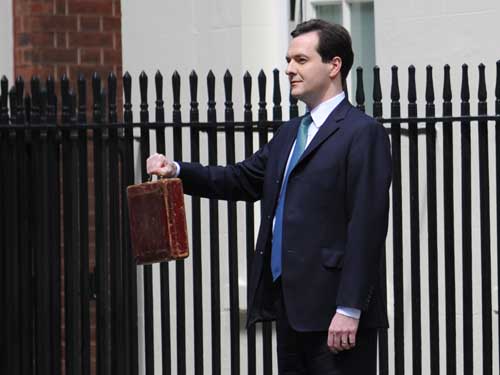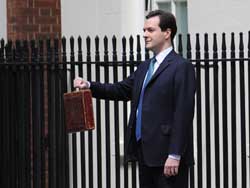It's looking bad for the Chancellor with it likely that forecasts made for the growth of the economy last Autumn will once again be revised down, the deficit removal target for 2019 will be missed and a decline in popularity for the Tory leadership contest against Boris Johnson. All things point to a Budget with more cuts to somehow get the deficit reduction plan working but all leading economists are opposed to this idea.
We're not sure what the surprises might be this year, last year we had the 'Lamborghini' pension rule relaxation allowing retirement pots to be dipped into without penalty like before or the need to purchase annuities. There were stirs recently regarding the introduction of a 'flat-rate' pension tax relief system so that rather than provide taxpayers with relief on their pension contributions at their marginal rate, a 25% flat amount of relief would be provided. This ideas seems to have been shelved - perhaps in favour of a Pension ISA where you can make contributions as you like with a lower rate of relief applied but then extract the cash in retirement entirely tax-free.
There has been on-going work to combine Income Tax with National Insurance since 2011 with the goal to simplify tax further and bring parity to the thresholds for both. Consultation closed for that a while ago and a new consultation was started this past December on closer aligning the two deductions. Results have as yet not been published so maybe there will be some light shed on Wednesday. We know the result of combining the two 'taxes' - a higher headline rate of income tax. The Chancellor may offset this by a larger raise to the tax-free personal allowance.
Following last Autumn's raise in Insurance Premium Tax, it appears the Chancellor likes the increased revenue and could be planning to raise the tax once more. It was increased from 6 percent to 9.5 percent previously (60% increase) and a mooted 30 percent increase this time to 12.5 percent would mean the tax has been doubled in less than a year. A typical car insurance policy would cost an additional £40 per year, but the effects are further reaching with the sheer number of products liable to the insurance tax. Fuel duty, frozen since 2011 may continue to remain the same as reportedly increasing the duty by 2p is not a popular option at the moment with an IPT increase heavily favoured.
Changes made to buy to let via Stamp Duty and tax reliefs are coming in next month, the latter a phased-in approach. There should be more information on how the phase-in (starting from April 2017) will be handled as it is planned to remove the tax relief available on mortgage interest payments for Landlords.
Catch up with us on Wednesday March 16th from 10am for full coverage right here and on our twitter.



